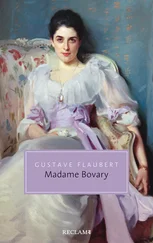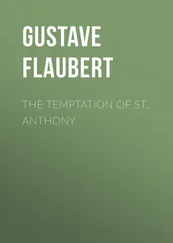Gustave Flaubert - The George Sand-Gustave Flaubert Letters
Здесь есть возможность читать онлайн «Gustave Flaubert - The George Sand-Gustave Flaubert Letters» — ознакомительный отрывок электронной книги совершенно бесплатно, а после прочтения отрывка купить полную версию. В некоторых случаях можно слушать аудио, скачать через торрент в формате fb2 и присутствует краткое содержание. Жанр: foreign_antique, foreign_prose, на английском языке. Описание произведения, (предисловие) а так же отзывы посетителей доступны на портале библиотеки ЛибКат.
- Название:The George Sand-Gustave Flaubert Letters
- Автор:
- Жанр:
- Год:неизвестен
- ISBN:нет данных
- Рейтинг книги:4 / 5. Голосов: 1
-
Избранное:Добавить в избранное
- Отзывы:
-
Ваша оценка:
- 80
- 1
- 2
- 3
- 4
- 5
The George Sand-Gustave Flaubert Letters: краткое содержание, описание и аннотация
Предлагаем к чтению аннотацию, описание, краткое содержание или предисловие (зависит от того, что написал сам автор книги «The George Sand-Gustave Flaubert Letters»). Если вы не нашли необходимую информацию о книге — напишите в комментариях, мы постараемся отыскать её.
The George Sand-Gustave Flaubert Letters — читать онлайн ознакомительный отрывок
Ниже представлен текст книги, разбитый по страницам. Система сохранения места последней прочитанной страницы, позволяет с удобством читать онлайн бесплатно книгу «The George Sand-Gustave Flaubert Letters», без необходимости каждый раз заново искать на чём Вы остановились. Поставьте закладку, и сможете в любой момент перейти на страницу, на которой закончили чтение.
Интервал:
Закладка:
Critics have spent much time in discussing the conflict of "romantic" and "realistic" tendencies in Flaubert's works. And it is obviously easy, so far as subject-matter is concerned, to group his books in two divisions: on the one hand, The Temptation of St. Anthony, Salammbo, and two of the Trois Contes; on the other hand, Madame Bovary, L'Education Sentimentale, and the incomplete Bouvard and Pecuchet. We may call the tales in the first group romantic, because the subject-matter is remote in time and place, and because in them Flaubert indulges his passion for splendor – for oriental scenery, for barbaric characters, the pomp of savage war and more savage religion, events strange, terrible, atrocious. We may call the stories in the other group realistic, because the subject-matter is contemporary life in Paris and the provinces, and because in them Flaubert indulges his hatred for mediocrity – for the humdrum existence of the country doctor, the apothecary, the insipid clerk, the vapid sentimental woman, and the charlatans of science. But as a matter of fact, ALL his books are essentially constructed on the same theory: all are just as "realistic" as Flaubert could make them.
Henry James called Madame Bovary a brilliantly successful application of Flaubert's theory; he pronounced L'Education Sentimentale "elaborately and massively dreary"; and he briefly dismissed Salammbo as an accomplished work of erudition. Salammbo is indeed a work of erudition; years were spent in getting up its archaeological details. But Madame Bovary is also a work of erudition, and Bouvard and Pecuchet is a work of enormous erudition; a thousand volumes were read for the notes of the first volume and Flaubert is said to have killed himself by the labor of his unfinished investigations. There is no important distinction to be made between the method or the thoroughness with which he collected his facts in the one case or the other; and the story of the war of the mercenaries against the Carthaginians is evolved with the same alternation of picture and dramatic spectacle and the same hard merciless externality that distinguish the evolution of Emma Bovary's history.
We may go still farther than that towards wiping out the distinction between Flaubert's "romantic" and his "realistic" works; and by the same stroke what is illusory in the pretensions of the realists, namely, their aspiration to an "impersonal art."
If we were seeking to prove that an author can put NOTHING BUT HIMSELF into his art, we should ask for no more impressive illustions than precisely, Madame Bovary and Salammbo. These two masterpieces disclose to reflection, no less patently than the works of George Sand, their purpose and their meaning. And that purpose and meaning are not a whit less personal to Flaubert than the purpose and meaning of Indiana, let us say, are personal to George Sand. The "meaning" of Madame Bovary and Salammbo is, broadly speaking, Flaubert's sense of the significance – or, rather, of the insignificance – of human life; and the "purpose" of the books is to express it. The most lyrical of idealists can do no more to reveal herself.
The demonstration afforded by a comparison of Salammbo and Madame Bovary is particularly striking because the subject-matters are superficially so unlike. But take any characteristic series of pictures or incidents from Salammbo: take the passing of the children through the fire to Moloch, or the description of the leprous Hanno, or the physical surrender of the priestess to her country's enemy, or the following picture of the crucified lion:
"They were marching through a wide defile, hedged in by two chains of reddish hillocks, when a nauseous odor struck their nostrils, and they believed that they saw something extraordinary at the top of a carob tree; a lion's head stood up above the foliage.
"Running towards it, they found a lion attached to a cross by its four limbs, like a criminal; his enormous muzzle hung to his breast, and his forepaws, half concealed beneath the abundance of his mane, were widely spread apart, like a bird's wings in flight; under the tightly drawn skin, his ribs severally protruded and his hind legs were nailed together, but were slightly drawn up; black blood had trickled through the hairs, and collected in stalactites at the end of his tail, which hung straight down the length of the cross. The soldiers crowded around the beast, diverting themselves by calling him 'Consul!' and 'Citizen of Rome!' and threw pebbles into his eyes to scatter the swarming gnats."
And now take any characteristic series of pictures or incidents from Madame Bovary: take Bovary's bungling and gruesome operations on the club-footed ostler's leg, with the entire village clustering agape; take the picture of the eyeless, idiotic beggar on the road to Rouen; or the scene in which Emma offers herself for three thousand francs to Rodolphe; or the following bit, only a bit, from the detailed account of the heroine's last hours, after the arsenical poisoning:
"Emma's head was turned towards her right shoulder, the corner of her mouth, which was open, seemed like a black hole at the lower part of her face; her two thumbs were bent into the palms of her hands; a kind of white dust besprinkled her lashes, and her eyes were beginning to disappear in that viscous pallor that looks like a thin web, as if spiders had spun it over. The sheet sunk in from her breast to her knees, and then rose at the tips of her toes, and it seemed to Charles that infinite masses, an enormous load, were weighing upon her.
"The church clock struck two. They could hear the loud murmur of the river flowing in the darkness at the foot of the terrace. Monsieur Bournisien from time to time blew his nose noisily and Homais' pen was scratching over the paper."
In these two detached pictures – the one from a so-called "romantic," the other from a so-called "realistic" book – one readily observes the likeness in the subjects, which are of a ghastly repulsiveness; the same minuteness of observation – e.g., the lion's hind legs "slightly drawn up," the woman's thumbs "bent into the palms of her hands"; the same careful notation of effect on the several senses; the same rhetorical heightening – e.g., the "stalactites at the end of his tail," the web in the woman's eyes "as if spiders had spun it over"; and finally, that celebrated detachment, that air as of a medical examiner, recording the results of an autopsy. What can we know of such an author? All, or nearly all, that he knew of himself, provided we will searchingly ask ourselves what sort of mind is steadily attracted to the painting of such pictures, to the representation of such incidents, and what sort of mind expresses a lifetime of brooding on the significance of life in two such books as Madame Bovary and Salammbo.
At its first appearance, Madame Bovary was prosecuted, though unsuccessfully, as offensive to public morals. In derision of this famous prosecution, Henry James with studious jauntiness, asserts that in the heat of his first admiration he thought what an excellent moral tract it would make. "It may be very seriously maintained," he continues, "that M. Flaubert's masterpiece is the pearl of 'Sunday reading.'" As a work of fiction and recreation the book lacks, in his opinion, one quite indispensable quality: it lacks charm. Well, there are momentary flashes of beauty and grace, dazzling bits of color, haunting melancholy cadences in every chapter of Flaubert; but a charming book he never wrote. A total impression of charm he never gave – he never could give; because his total impression of life was not charming but atrocious. It is perhaps an accident, as has been suggested, that one can so readily employ Madame Bovary to illustrate that text on the "wages of sin." Emma, to be sure, goes down the easy and alluring path to disgrace and ruin. But that is only an incident in the wider meaning of Flaubert's fiction, a meaning more amply expressed in Salammbo, where not one foolish woman alone but thousands on thousands of men, women, and children, mingled with charging elephants and vipers, flounder and fight in indescribable welters of blood and filth, and go down to rot in a common pit. If I read Flaubert's meaning right, all human history is there; you may show it by painting on broad canvas a Carthaginian battle-scene or by photographing the details of a modern bedroom: a brief brightness, night and the odor of carrion, a crucified lion, a dying woman, the jeering of ribald mercenaries, the cackle of M. Homais. It is all one. If Flaubert deserved prosecution, it was not for making vice attractive, but for expressing with invasive energy that personal and desperately pessimistic conception of life by which he was almost overwhelmed.
Читать дальшеИнтервал:
Закладка:
Похожие книги на «The George Sand-Gustave Flaubert Letters»
Представляем Вашему вниманию похожие книги на «The George Sand-Gustave Flaubert Letters» списком для выбора. Мы отобрали схожую по названию и смыслу литературу в надежде предоставить читателям больше вариантов отыскать новые, интересные, ещё непрочитанные произведения.
Обсуждение, отзывы о книге «The George Sand-Gustave Flaubert Letters» и просто собственные мнения читателей. Оставьте ваши комментарии, напишите, что Вы думаете о произведении, его смысле или главных героях. Укажите что конкретно понравилось, а что нет, и почему Вы так считаете.












